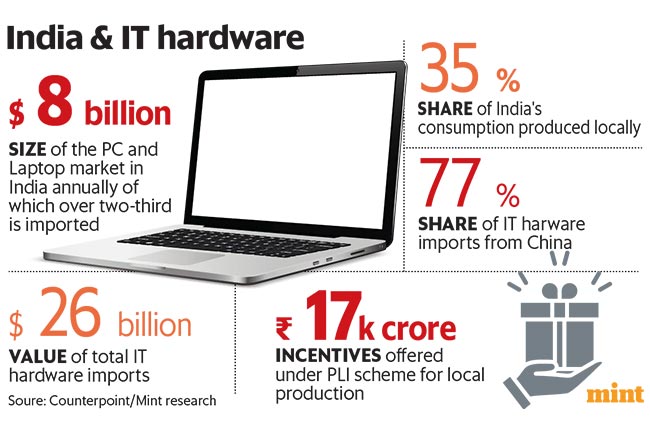India, as a growing economy and a huge market entity, has had a profound impact on the development trajectory of the global IT hardware industry. With the Indian government’s determination to drive the development of domestic manufacturing, its recent series of measures on IT hardware import policy has attracted widespread attention in the industry. These policies attempt to find a balance between protecting the domestic industry, reducing import dependence and ensuring global enterprises compete fairly in the Indian market.

The Government of India controls the import of IT hardware
(1) Implementation of the registration procedure
The General Office of Foreign Trade of India (DGFT) has officially launched the registration process for the importing IT hardware enterprises, promising to control the time of application for approval within one week. Companies must provide data on the value and quantity of IT hardware imports and exports over the past three years and report their manufacturing activities in India.
Strengthening import supervision
As of November 1, 2023, enterprises importing IT hardware must present registration certificates to the customs.There is no quantity limit at present, but the government will strictly monitor import details to ensure the implementation of the policy.
Dialogue with industry representatives
On September 25, 2023, representatives of the IT hardware industry held in-depth discussions with officials from the Indian Ministry of Electronics and Information Technology (MeitY) on the registration process to ensure the smooth implementation of the policy.
Import registration and adjustment of its validity period
(1) Determination of the validity period of initial registration
The initial period of validity of the registration will last from November 1, 2023 to September 30, 2024, with no limitation of the period, so that companies have enough time to adapt to the new policy.
(2) Enforcement of quota import authorisations
From 1 October 2024, the quota import authorisation mechanism will be officially implemented.
(3) Continuous monitoring and implementation
The Indian government will continue to pay attention to imports and continue to optimize adjustments in subsequent policies to promote domestic industrial development.
Extending the freedom period to promote localized production
(1) The background and considerations of the delay
Due to the business layout of several global IT hardware giants in India, the government has given these companies a one-year extension on the import license requirements that were scheduled to be implemented on November 1, 2023.
(2) Specific details of the delay
For imported items within the HSN8741 category, such as laptops, tablets and personal computers, the current implementation date will be adjusted to November 1, 2024.
3) Target positioning
The extension is intended to give these companies more time to establish or expand their production capacity in India, thus boosting India’s IT hardware manufacturing industry.
Promote IT hardware production in India
1) Preliminary output
As of July 1, 2023, 10 of the 40 companies that submitted applications for the IT hardware production incentive program have already started production in India.
2) Future development planning
Additional 25 companies are expected to start production in India by April 1, 2024, and more will join by April 1, 2025.
Effects of the PLI plan
Under the six-year IT hardware PLI2.0 program, the Indian government received 40 proposals worth 50 billion rubles. The plan covers the production of a variety of IT hardware products and attracted world-renowned IT hardware companies including Dell and HP.


 Follow customer service WeChat
Follow customer service WeChat